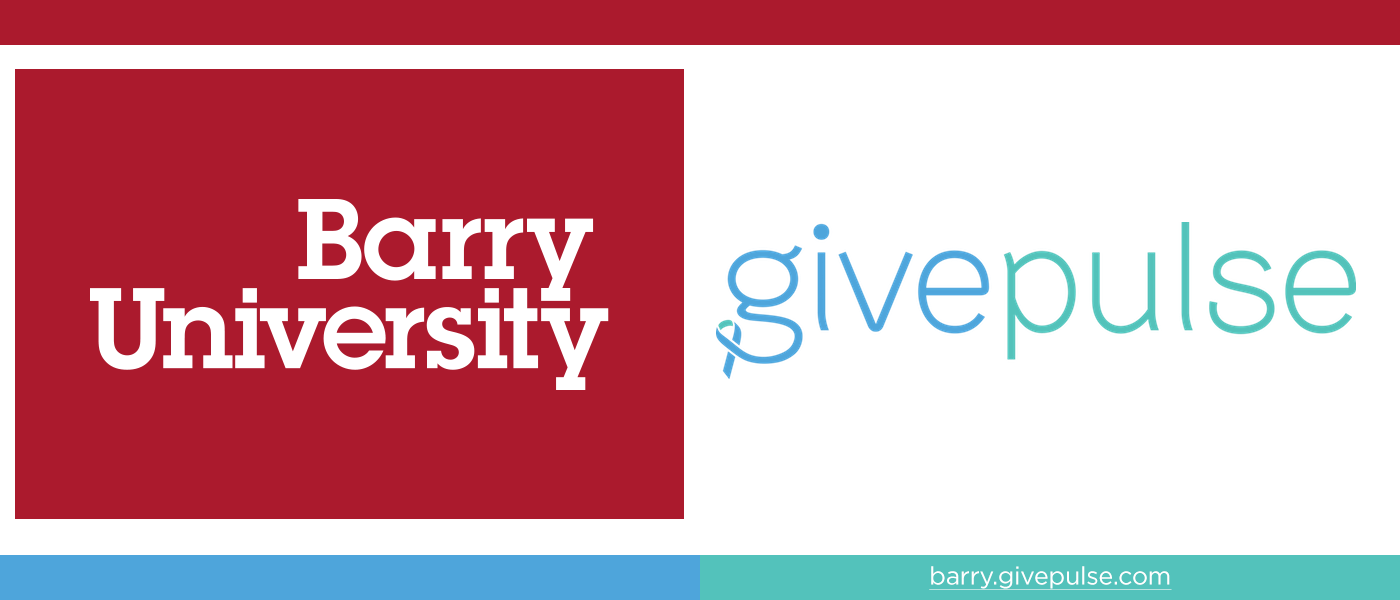Community Engagement News November 8, 2021
University Leaders Join Faculty in Celebrating Publication of Experiential Learning Book
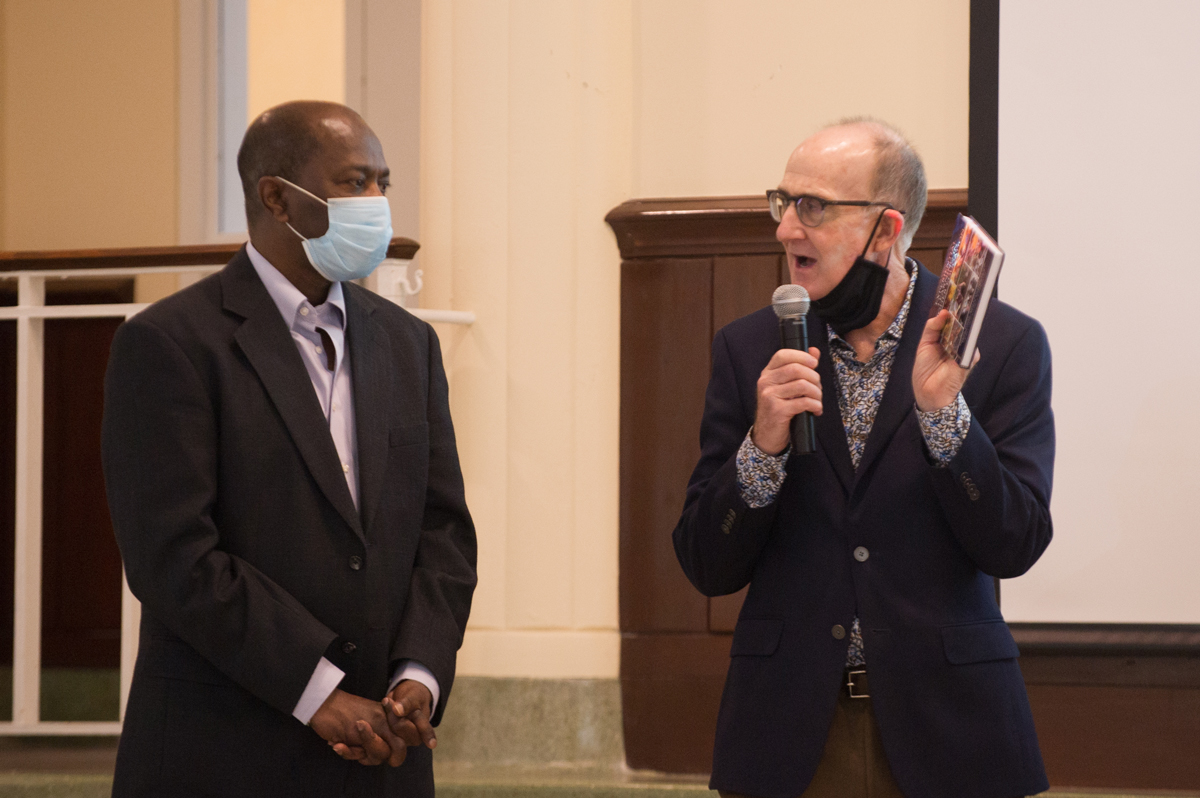
Provost Murray has high praises for “Experiential Learning in Higher Education,” edited by Dr. Laura Finley and Dr. Glenn Bowen (pictured at left). The chapter authors presented overviews at a celebratory seminar on campus.
President Mike Allen, Provost John Murray, and other university leaders joined faculty members recently in celebrating the publication of a book on experiential learning. The book’s editors and authors are members of Barry’s Faculty Learning Community for Engaged Scholarship (FLC).
Dr. Allen praised the publication as “impressive.” And Dr. Murray called it “awesome,” adding that this is the kind of work he looked forward to seeing from Barry’s faculty members.
“Experiential Learning in Higher Education” features best practices in the field connected to community-engaged scholarship. Chapters showcase service-learning, community-based research, and other experiential learning initiatives, highlighting innovative approaches, successes, and issues of concern.
The Faculty Senate and the Center for Community Service Initiatives (CCSI) jointly hosted the celebratory event as part of the Presidential Faculty Seminar Series. The CCSI coordinates the work of the FLC, which includes regularly scheduled engaged scholarship seminars.
Chapter authors were on hand to present overviews and make brief comments.
Among university leaders in attendance were Yvette A-M Koottungal, vice president for strategic initiatives and chief information officer; Julie Isha, vice president for enrollment and marketing; Dr. Karen Callaghan, dean of the College of Arts and Sciences; Dr. Bogdan Daraban, dean of the School of Business; and Dr. Victor Romano, associate provost for student success and undergraduate studies.
Dr. Christopher “Kit” Starratt, retired vice provost, also attended the hour-long event, which took place on November 28 in Weber Grand Hall and via Zoom, the videoconferencing platform.
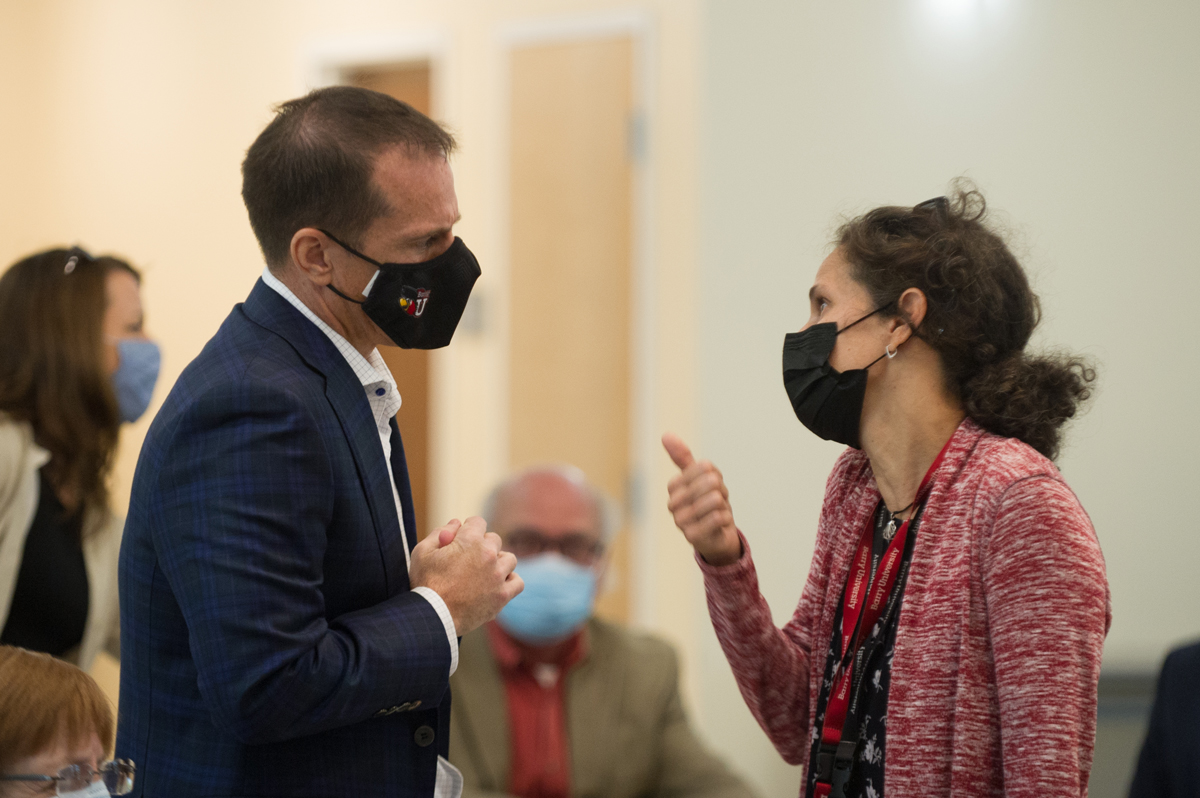
Above: President Allen exchanging thoughts with Dr. Leticia Vega, a former chair of Barry’s Faculty Senate.
Below: Faculty members and administrators at the Presidential Faculty Seminar in Weber Grand Hall.
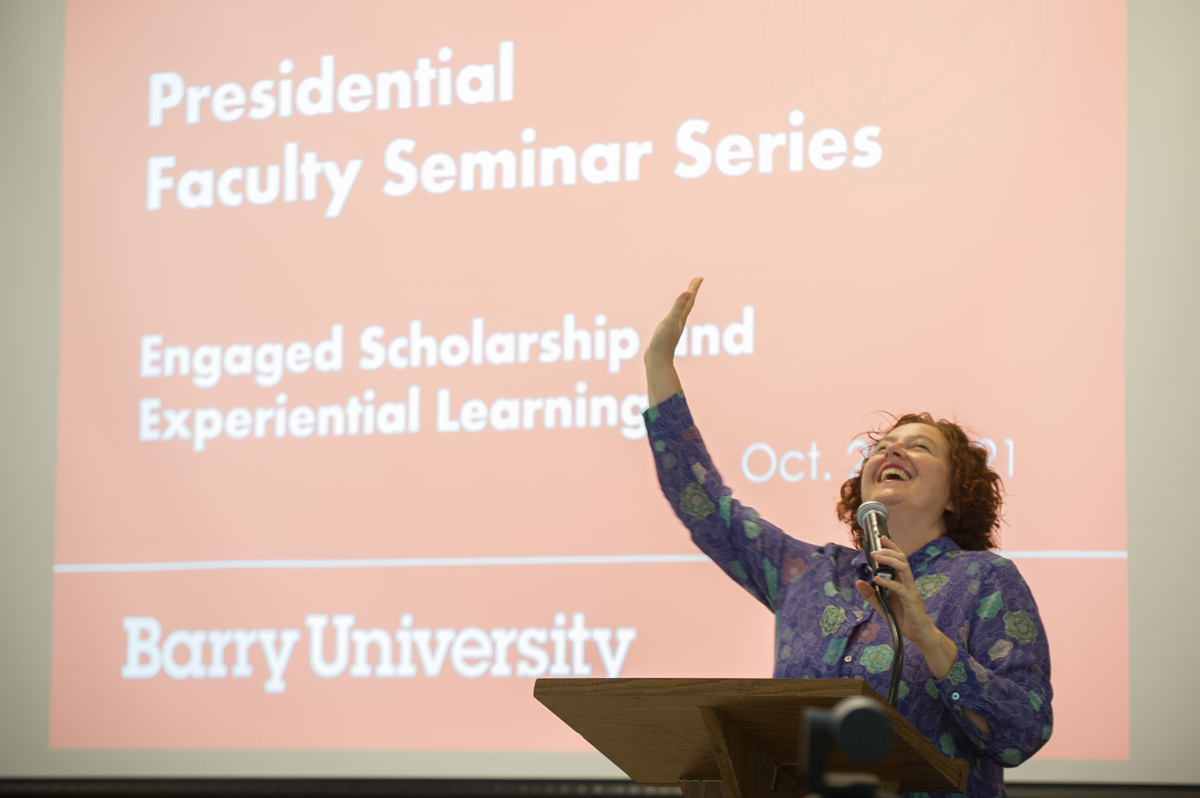

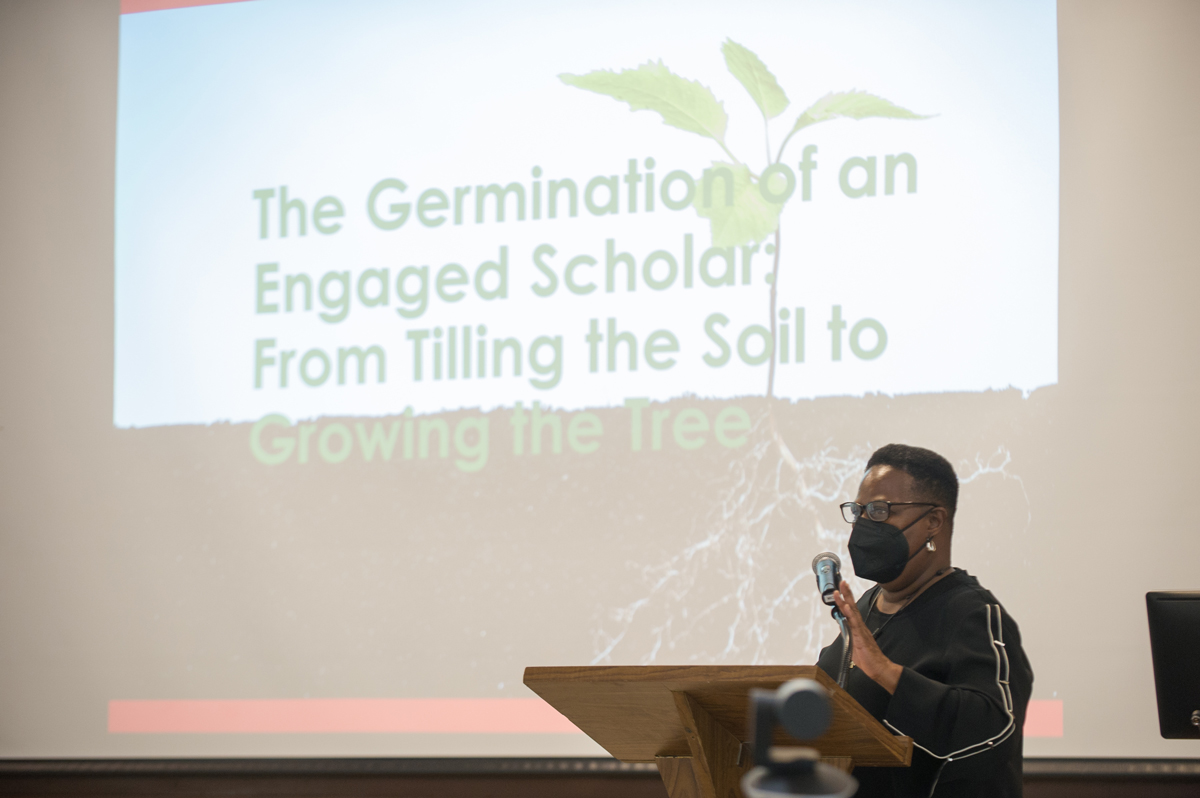

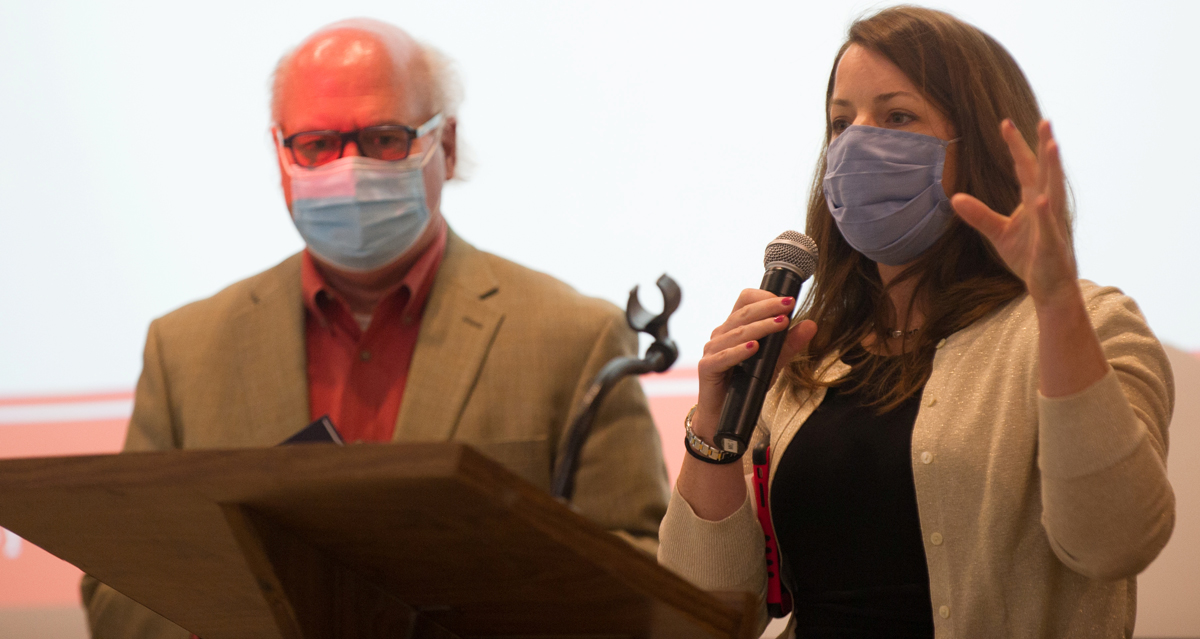
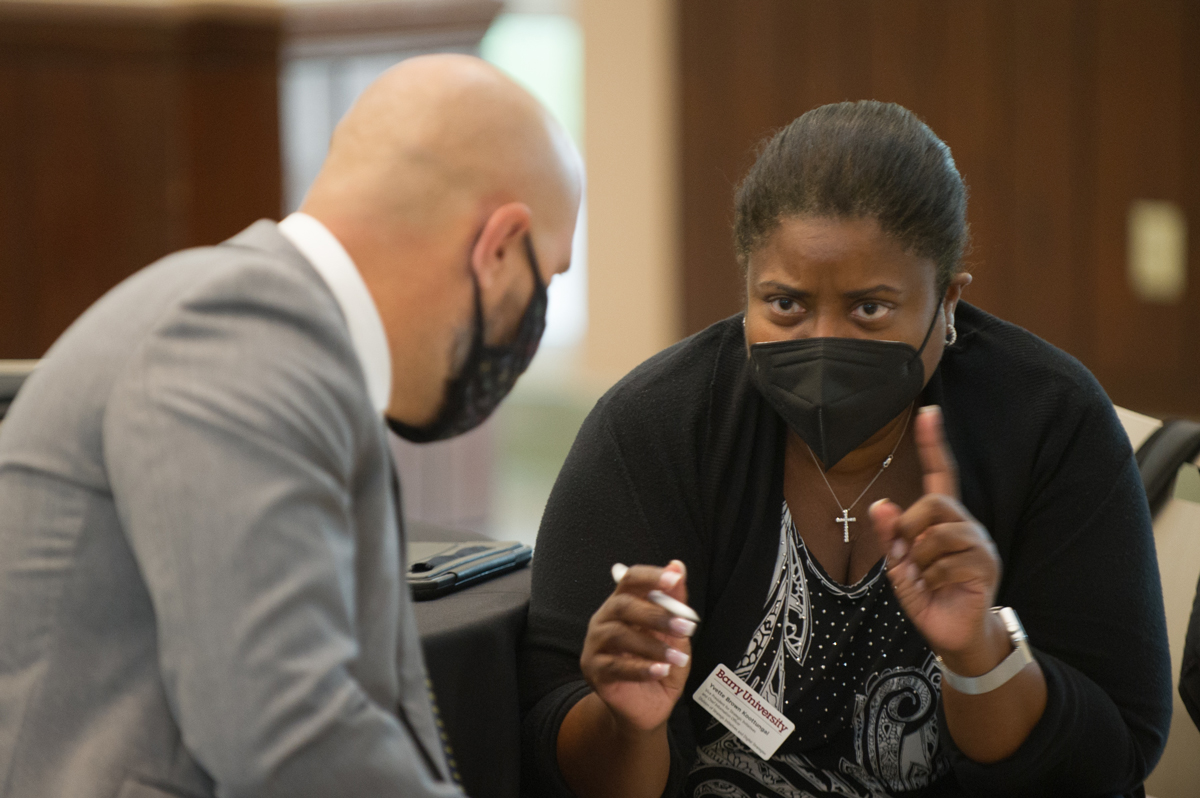
Dr. Celeste Landeros, chair of the Faculty Senate and a co-facilitator of the FLC, shared information on the Presidential Faculty Seminar Series.
Dr. Paige Banaji, chair of the Faculty Senate’s Communiqué and Faculty Awards Committee, spoke about the committee’s work. She also called for submissions for the annual publication and awards.
CCSI Executive Director Dr. Glenn Bowen outlined the purpose of the FLC. He noted that the CCSI established the FLC in 2012 as a faculty development program.
“The FLC has provided an intellectual venue in which faculty members exchange ideas, reflect, and learn from one another’s experiences,” Dr. Bowen explained. “Furthermore, the FLC has successfully promoted the pursuit, advancement, and application of knowledge to benefit the wider community.”
Dr. Pamela Hall, a co-facilitator of the FLC, announced that the next FLC seminar would be held on November 18 from 3:30 to 4:30 p.m.
Dr. Laura Finley, a co-facilitator of the FLC and co-editor of ”Experiential Learning in Higher Education”, shared information on the book project. She noted that the book was published by Information Age Publishing as a volume in its Peace Education series.
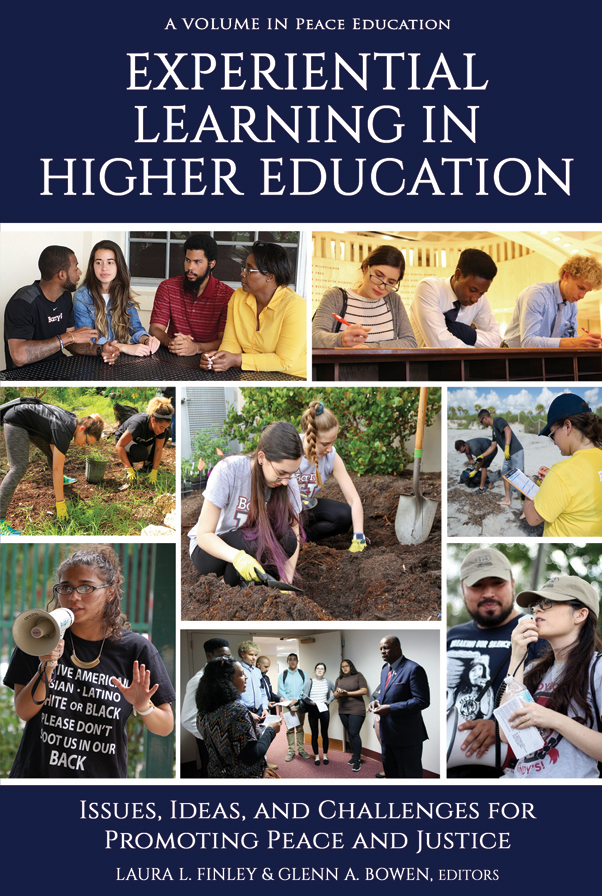
-
Community-Focused Experiential Learning: Creating Conditions for Fostering Social Responsibility
Glenn A. Bowen -
Exploring a Critical Model of Faculty Engagement With Service-Learning Programs
Heidi Whitford -
The Germination of an Engaged Scholar: From Tilling the Soil to Growing the Tree
Pamela D. Hall -
Building a Campus–Community Coalition to Address Dating and Domestic Violence
Laura L. Finley -
Acting Like a Prince, Dancing Like a Queen, Singing Like a Cop: Promoting Peace and Justice Through Community-Engaged Film and Theater in General Education Arts Courses for Adults
Celeste Landeros (with Samoya Gordon, Tanisha Durham, and Braxton McClams) -
Building Minds and Organizations Through Conversational Learning
Sheila M. McMahon and Dale E. Hartz -
Global Service-Learning as an Avenue to Address Social Determinants of Health: Considerations for Undergraduate Nursing Education
Mureen L. Shaw and Glenn A. Bowen -
Multilingualism in the Home, Workplace, and Community: Lessons From an Experiential Learning Project
Ligia A. Mihut -
Community-Based Research as an Approach to Experiential Learning in Methodology of Research: A Case Study
Gerene K. Starratt -
Developing Novice Researchers as Social Justice Advocates: Lessons Learned From the Trenches in Performing Community-Based Research Pedagogy
Ruth Ban; Clarence V. Walker, Jr.; Liliam Dominguez Menendez; and Valerie G. M. Scott
Barry’s Student Voting Rate Increased to 63 Percent, Registration Rate to Nearly 80 Percent in 2020
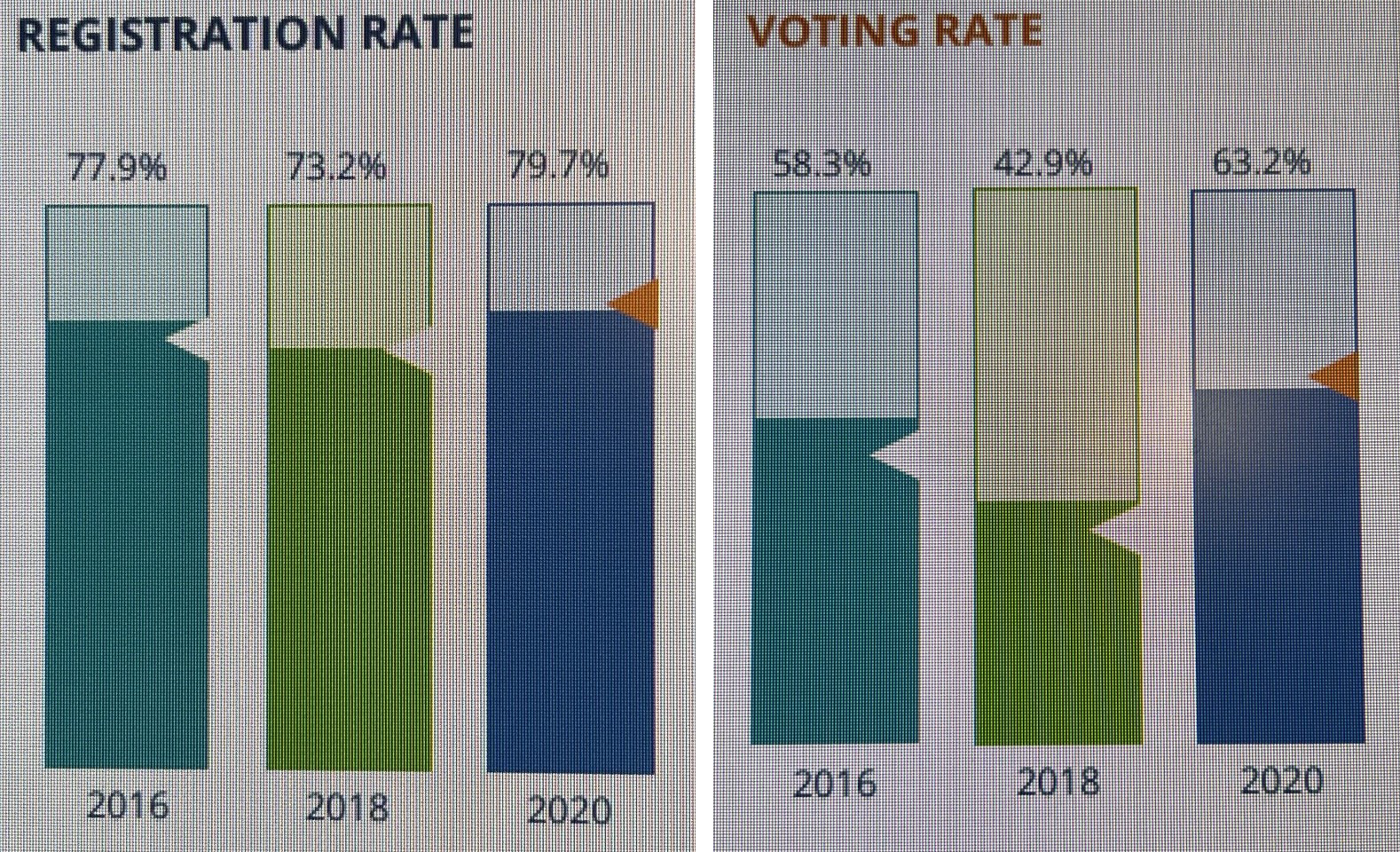
Barry’s student voting rate increased to 63.2% in 2020—up by nearly 5 percentage points from the 2016 voting rate, the National Study of Learning, Voting, and Engagement (NSLVE) found.
The voter registration rate among Barry students rose from 77.9% in 2016 to 79.7% in 2020. Those are the two most recent U.S. presidential election years.
A report from the Institute for Democracy and Higher Education (IDHE) showed that Barry’s student voting rate was lower than the average voting rate for all institutions, which was 66% in 2020.
A unit of Tufts University’s Tisch College of Civic Life, IDHE created NSLVE, which is now the nation’s largest study of college and university student voting.
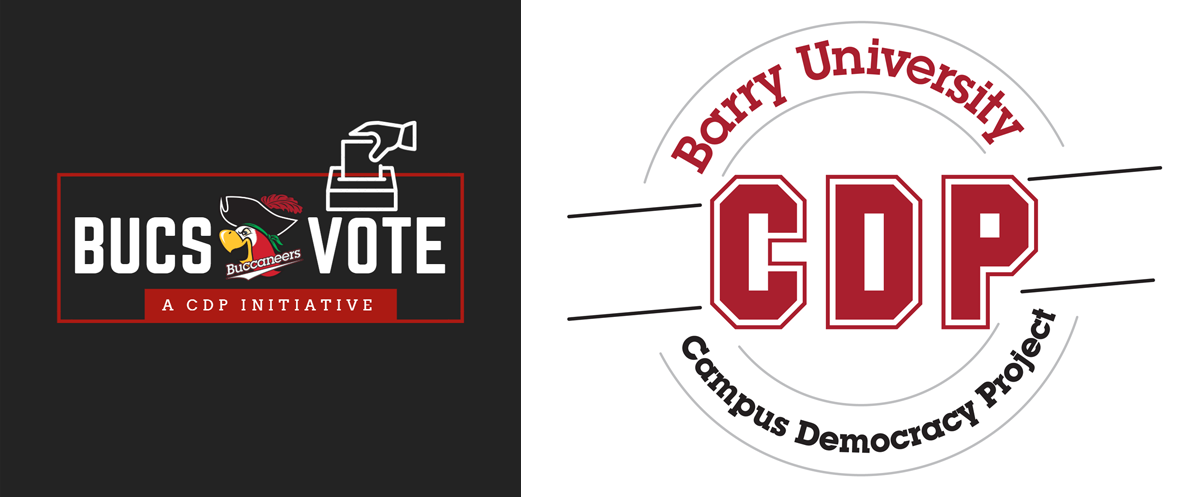
The Campus Democracy Project (CDP) played a major role in Barry’s achievement by promoting voter registration, education, and engagement.
The CDP, which includes BucsVote, is a civic learning and democratic engagement project managed by the CCSI. A committee of students, faculty, and staff members organizes project activities throughout the academic year.
Barry Faculty Members Listed Among Presenters at Two Forthcoming Conferences


Faculty members from Barry will be among the presenters at conferences this month and in January.
Dr. Katsiaryna Matusevich, an associate professor of human resource development in the School of Education, and Dr. Pawena Sirimangkala, an associate professor of communication and director of the Honors Program in the College of Arts and Sciences, are on the list of presenters for IARSLCE 2021.
“IARSLCE 2021: Reflections on a Tumultuous Time” is the virtual gathering of the International Association for Research on Service-Learning and Community Engagement scheduled for November 15–17.
Dr. Matusevich will present a poster, “Serving the Broader Good With Human Resource Development: Exploring the Effectiveness of an E-Service-Learning Graduate Course.” Dr. Sirimangkala will make a video presentation titled “Service-Learning/Community Engagement in Honors Colleges and Programs.”
At IARSLCE 2021, Dr. Glenn A. Bowen, an associate professor and the executive director of the CCSI, will participate in two special sessions. The first, on November 15, will draw attention to “critical applications and new spaces” for community engagement. The second, on November 16, will be focused on efforts to confront racial and ethnic marginalization in higher education.
Dr. Bowen is also slated to be a presenter at the AAC&U (Association of American Colleges and Universities) Annual Meeting on January 20. He will be the lead panel presenter of a session titled “Responding to Sociopolitical and Racial Challenges Facing American Society Through Democratic and Antiracism Initiatives.”
The other panelists include Roni Bennett, co-founder and executive director of South Florida People of Color. The Miami Shores-based nonprofit organization is a Barry community partner.
Listed in the Global and Civic Learning track, the 60-minute panel presentation will be made virtually at the three-day, hybrid (in-person and virtual) meeting. The meeting is organized around the theme of “Educating for Democracy.”
Community Partnership is One of Seven Categories of Awards for Community Engagement

Community Partnership is one of seven categories of community engagement awards for which nominations are being accepted.
The Community Partnership Award recognizes exemplary partnerships between university and community constituencies that produce measurable improvements in people’s lives while enhancing higher education.
Students, faculty and staff members, and community partners are invited to submit nominations by the last Friday of January.
In 2021, Bread for the World was the award winner in the Community Partnership category.
Bread’s mission is to end hunger by the year 2030. As “a collective Christian voice,” the organization mobilizes individuals, churches, institutions of higher education, and other organizations to engage in organized advocacy. In addition to doing advocacy work on the national stage, Bread has worked closely with Barry University, making presentations that have enriched the curriculum while educating students about the problem of hunger and its dire consequences.
The nonprofit organization has also facilitated simulations on the racial wealth gap, emphasizing the connections among racial equity, hunger, poverty, and wealth.
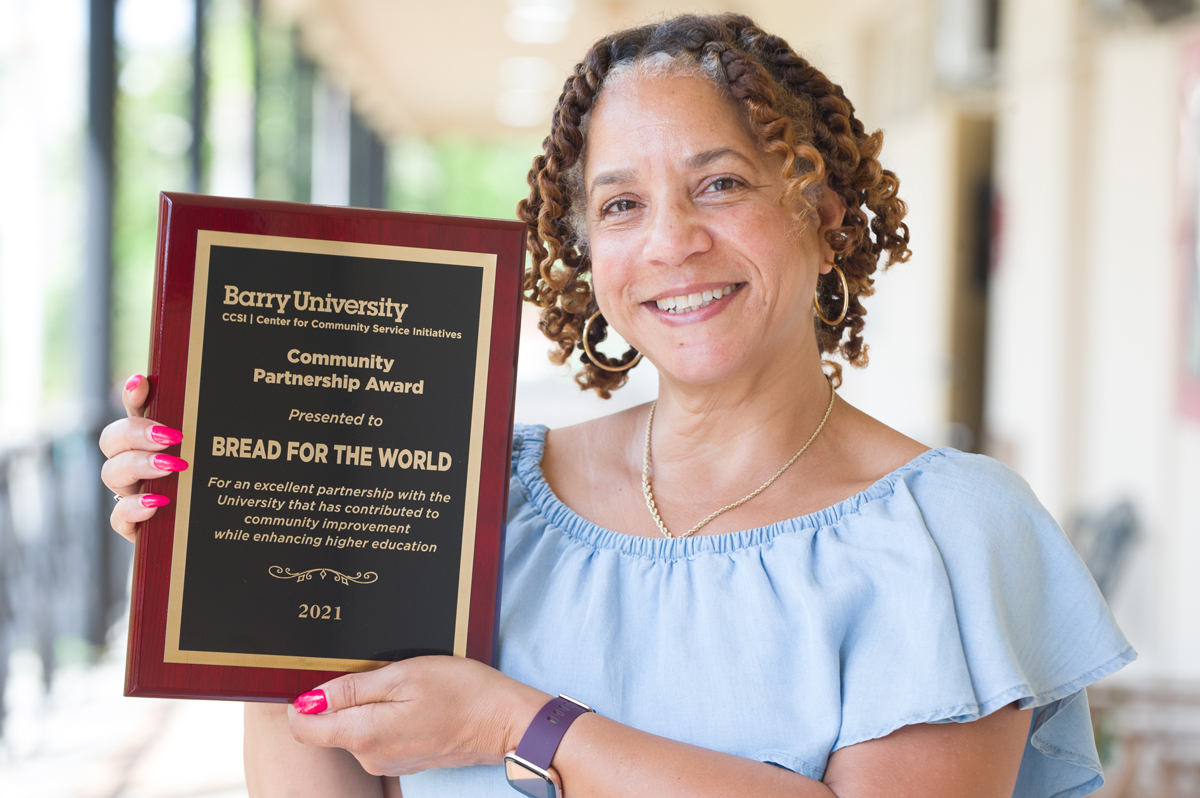
Bread for the World was the recipient of the Community Partnership Award for 2021. Pictured here displaying the award plaque is Florence French Fagan, a Bread organizer.
The winners of the Community Partnership Award in 2020 were the New Florida Majority and PACT: People Acting for Community Together; 2019—the Haitian Youth and Community Center of Florida and the Palm Beach County Sheriff’s Office; 2018—Historic Virginia Key Beach Park, MCCJ, and the Women’s Breast and Heart Initiative; 2017—Gang Alternative, Miami Beach Community Church, Urban GreenWorks, and William H. Turner Technical Arts High School; 2016—Church World Service, the Coalition of Immokalee Workers & Student/Farmworker Alliance, the Collaborative Family Law Group of Central Florida, and Special Olympics Florida; 2015—League of Women Voters of Florida, Miami Children’s Initiative, and Volunteer Income Tax Assistance Partnership; and 2014—Feeding South Florida, Miami Edison Senior High School, and Mount Tabor Missionary Baptist Church.
The CCSI will host Barry’s Ninth Annual Community Engagement Awards Ceremony on March 30.
Nominations will be accepted also in six other categories: Community Impact, Community-Based Research, Community-Engaged Scholarship, Community Engagement Educator, Service-Learning Faculty, and Engaged Department. Additional information and the nomination forms are available from the CCSI at service@barry.edu.
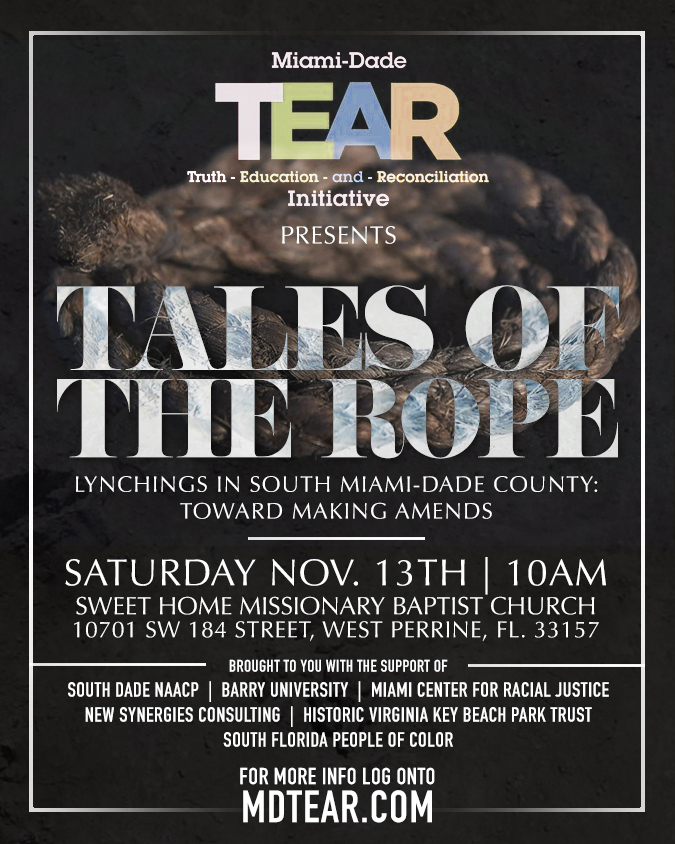

FOUNDERS’ DAY OF SERVICE: A day of service marked the start of Barry Founders’ Week. Collaborative service projects benefited the community near campus.
COMMUNITY IMPACT: Undergraduate Christa Jeanty is contributing to community impact through Easterseals. Writer Amanda Gonzalez Garcia highlights how the Barry Service Corps member is bringing joy to elderly residents.
COMMUNITY ENGAGEMENT AWARDS: Community-Based Research is one of the seven categories of community engagement awards for which the CCSI has called for nominations.
Community Engagement News is a publication of the Center for Community Service Initiatives.
- Email: service@barry.edu
- Facebook: barryccsi
- Twitter: @barryccsi
- Instagram: @barryccsi





















